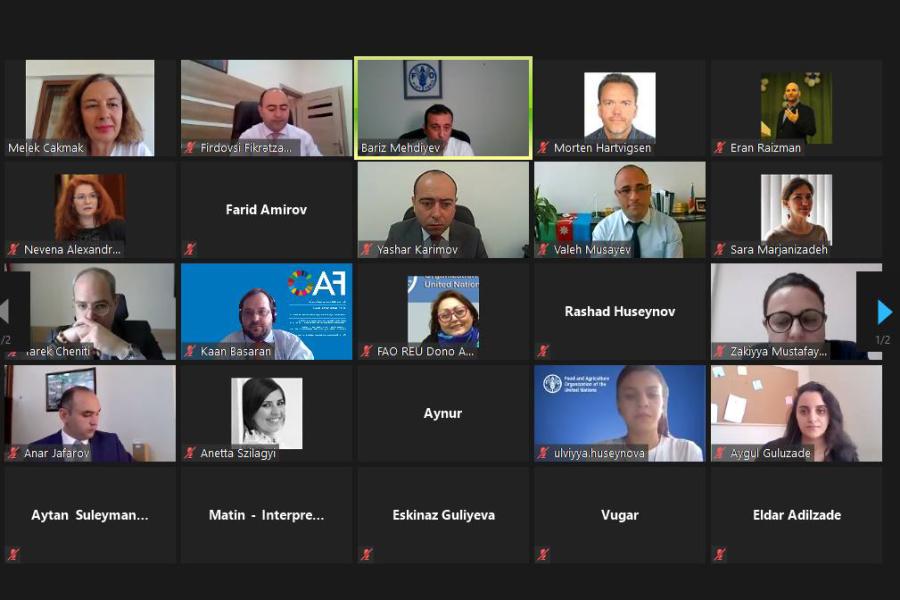Country Programming Framework for Azerbaijan for the period 2021-2025 has been approved
29 July 2021
- A meeting on the action plan between the FAO and the Government of Azerbaijan for 2021-2025 was held with the participation of representatives of the Food and Agriculture Organization of the United Nations, the Ministry of Agriculture, the Ministry of Ecology and Natural Resources, the Food Safety Agency and other relevant government agencies and international experts.

The meeting presented the general goals and program prospects of the FAO in Azerbaijan, the achievements of the previous action plan covering 2016-2020 and the priority areas of the new document.
The FAO-Azerbaijan Framework Document has been prepared in accordance with the UN Sustainable Development Cooperation Framework Document approved by the government in March. The new program includes discussions to plan activities in accordance with the requirements and challenges of the current era. The main goal is to ensure food security in Azerbaijan, increase the productivity of agricultural products, promote exports, as well as increase the more efficient use of natural resources. The program will also support the development of the FAO agriculture and value chain and the creation of a favourable environment for rural development.
As such CPF 2021-25 covers five priority areas:
- By 2025, people furthest behind participate in and benefit from a diverse and innovative economy encompassing future-oriented labour market transformation and access to decent work (UNSDCF Outcome 1.1)
- By 2025, people furthest behind benefit from enhanced national capacities and governance structures for social protection and quality public and social services, in line with Azerbaijan’s international commitments (UNSDCF Outcome 2.1)
- By 2025, quality, disaggregated and timely data is available and used to inform decision-making and policies that leave no one behind (UNSDCF Outcome 2.2)
- By 2025, people including those left behind benefit from climate strategies and environment protection policies that ensure natural resources are sustainably managed, livelihoods are protected, and resilience strengthened (UNSDCF Outcome 3.1)
- By 2025, women and girls, including those furthest behind, benefit from enhanced national mechanisms that ensure they are protected from discrimination and violence and empowered to participate in all spheres of life (UNSDCF Outcome 4.1)
At the end of the event, the participants expressed their gratitude for the approved new Framework Document, which reflects the identified plans and priorities, and expressed the importance of working together to achieve the generally defined goals within the document.

